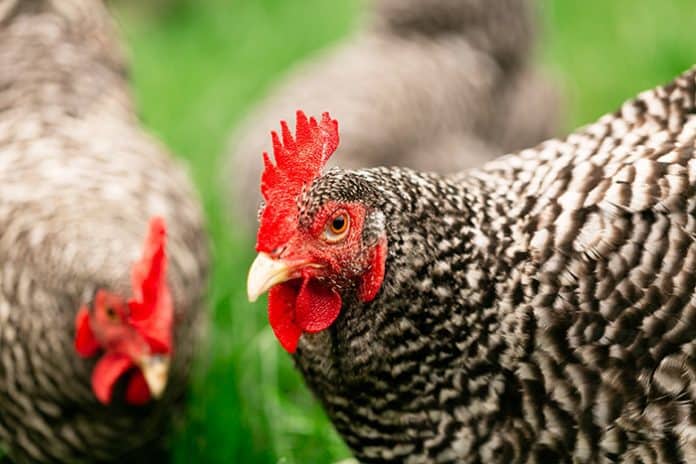
HOWELL – Why the chicken crossed the road is an old joke, but farmers weren’t laughing when a new ordinance was introduced that could fine them if their livestock got out.
Ordinance O-24-29 would have amended language that currently pertains solely to dogs to expand to all pets and livestock.
Owners of horses, donkeys, pigs, cows, goats, sheep, llamas, alpacas, chickens, ducks, geese, and even more exotic animals like peacocks and emus – could face fines if their animals were on the loose. The penalties were set to be $150 to $500 for general non-compliance, and up to $1,000 for multiple offenses.
After the ordinance was introduced, members of the public criticized it. The council was left with enough questions that they pulled it from voting.
Local farmer Elaine Taylor was one of the first to voice her concerns. She humorously shared how her horses once broke free and galloped off to find some mares to hang out. She added that while she was joking, she viewed the proposed ordinance as a money grab that was unfair to farmers.
“It’s very hard sometimes for farmers to control the situation,” Taylor added. “These animals have all day to find their way out and work hard at it.”
Bob Carroll, another Howell resident who raises livestock commercially, said he understood the benefit to the community. He agreed that livestock should not be able to roam in public areas. However, he added that it’s sometimes through no fault of the owner.
“In the event of a storm, a tree falls on a fence,” said Carroll. “Those are an act of God and not negligence on my part.”
Carroll’s interpretation of the proposed ordinance was that owners would be found automatically guilty if their livestock was loose on public property. Township Manager Joseph Clark explained otherwise.
Summonses for violations of the ordinances would be issued with some discretion. Clark said it would be a valid defense to say a fence was destroyed by a storm and cows got out.
“That’s a very different situation than I left my fence open for the thirteenth time. This would give the judge some latitude in situations like that,” he said.
The feedback from farmers was clear: while controlling runaway livestock is important, the proposed blanket fines seemed harsh and unfair.
Township Attorney Caitlin Harney said the township received a request from the Monmouth County SPCA to incorporate other pets and livestock into their existing running at large ordinance. Other local communities have done so already.
“The request came to the township after a particular incident with a pig getting loose,” Harney explained. “And since our ordinances didn’t cover it, that’s why they asked us. We matched it to other towns nearby and we tried to actually make the fines and violations lower than some neighboring towns.”
Councilman Fred Gasior suggested a more balanced approach, advocating for a warning on the first violation. In the end, the ordinance was sent back to the drawing board. The new version will consider the practical challenges farmers face while still addressing the need to manage pets and livestock responsibly.
So, for now, chickens can cross the road without fear of a hefty fine – but their owners should stay tuned for updates.







